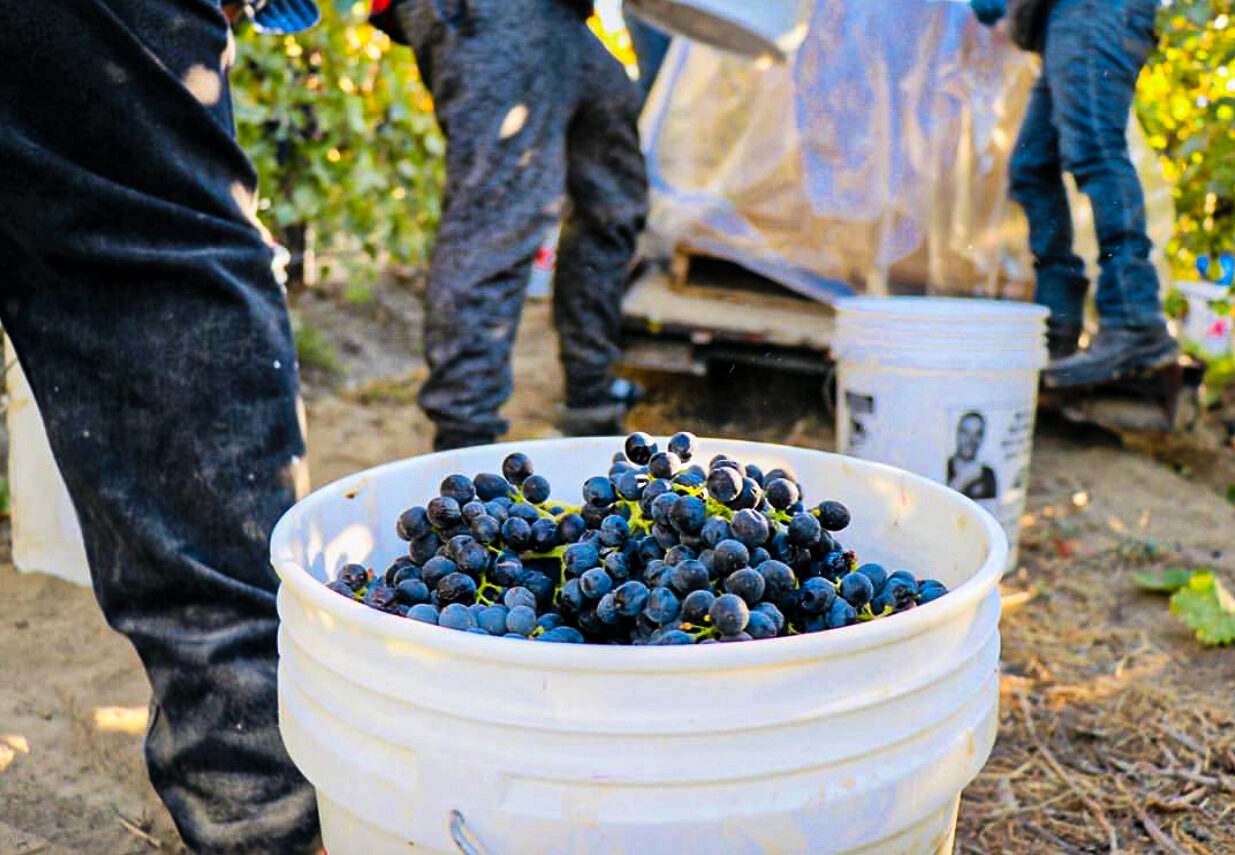The grape assessment is an annual fee levied on the growers of the state for all wine grapes harvested. State of Washington RCW 15.88.130 prescribes the method of payment as follows: the wine producers or handlers within Washington State are to collect the grower assessments from growers whose vinifera grapes they purchase or accept delivery and remit the assessments to the Commission, and growers who ship out of state, or country, must pay the Commission directly. Wineries should verify that the assessment is accounted for in their grape invoice from growers.
The payment for the 2025 wine grape assessment is $12/ton. Per State of Washington RCW 15.88, in order to meet filing requirements for the Wine Commission, the form and payment must be completed by December 31 of each year.
The data collected in the grape report allows the Commission to compile crush reports with important stats for the entire industry. Check out the 2024 harvest key stats and 2024 grape production report.
How is the grape assessment calculated?
State law requires the “first handler” of purchased vinifera wine grapes (i.e. the purchasing Washington winery) to collect the grape assessment due from the grower and remit that assessment to the Commission. Most often, the grower will deduct this grape assessment from their invoice to the winery, and the purchasing Washington winery will then pay this deducted grape assessment to the Commission. In this case, the grower transmits their grape assessment due to the Commission through the purchasing winery. This ensures that the grower bears the financial responsibility for the grape assessment.
While state law requires the purchasing Washington winery to transmit payment of the grape assessment to the Commission, this grape assessment is ultimately levied on the grower. If the grape assessment is not deducted from the invoice to the purchasing winery, then the purchasing winery should:
- Deduct the appropriate grape assessment from the invoice themselves;
- Pay the balance due to the grower, less the grape assessment owed to the Commission; and
- Pay this grape assessment to the Wine Commission directly.
This ensures that the grower bears the financial responsibility for the grape assessment.
If you have any questions on the Washington State Wine Commission grape assessment collection process, please contact Renee Meadors at rmeadors@washingtonwine.org or 206.601.1069.
Update and Background on the Annual Grape Report Process:
Every fall since 1985, NASS’s Washington Field Office has conducted a survey of the State’s wineries for the purpose of estimating the total tonnage of wine grapes produced and the value of the crop. The quantities of grapes purchased and crushed by variety and dollars paid to growers are two of the key data items obtained from the survey. The data is made available to the industry in the Annual Grape Report to provide vineyards and wineries information to make sound business decisions.
Data will include tonnage crushed by variety and average prices received per ton by Washington growers. Historic data is available from NASS back to 1985.
In 2013, the Wine Commission began collaborating with NASS to create the reports by collecting this data via the online grape report. However, when the cost of obtaining the reports from NASS became too high, the Commission began publishing the reports independently to make the most efficient use of assessment dollars. As of 2016, NASS has no longer had any involvement in the annual grape report process.
Wine Commission Participation Policy
To participate in any Wine Commission event, each winery/vineyard must be current on the current and past years’ wine grape assessments.
On March 13, 2009, the Washington Wine Commission Board of Commissioners adopted a policy that deals with a winery’s or grower’s ability to participate in Commission-sponsored events.
The policy that was unanimously adopted by your Board of Commissioners states the following:
No producer or grower may participate in any event sponsored, in whole or in part, by the Washington Wine Commission and funded by the assessments imposed by RCW 66.24.215 and RCW 15.88.130, unless such producer has paid all assessments and other amounts due pursuant to RCW 66.24.215 and applicable regulations, or all assessments and other amounts due have been collected on behalf of such grower as provided by RCW 15.88.130 and applicable regulations, at least two (2) business days prior to the date of any such event.
This includes, but is not limited to, participation in the following:
- Profiles on WA Wine website and mobile app
- Taste Washington – all events and seminars
- Road Trip Washington Wine
- National & local sponsored events
- International sponsored events
We view this policy as a sincere attempt to create equity within our industry, since year after year there are those who do not pay their assessments and, in turn, force the financial burden of our great programs and events on those who do pay their fair share. Thank you for your help.
Event Participation Policy
About the Washington State Wine Commission
In 1987, the Legislature created the Washington State Wine Commission to promote the growth of the wine industry for the benefit of all of the state’s citizens. The Commission was constituted under the Washington State Department of Agriculture and is governed by an appointed board of growers and winemakers, similar to commodity commissions for apples and other crops.
The Washington State Wine Commission is required to collect assessments from both wineries and growers to fund its activities. These two assessments are collected separately. The first—the assessment on all licensed wineries in Washington State—is collected monthly by the Washington State Liquor Control Board through wineries’ monthly reports to the WSLCB, which is then forwarded to the Commission. The second—the assessment on all growers of vinifera wine grapes in Washington State—is collected annually by the Commission itself.
Learn more about the Commission’s mission, vision, and structure here.

